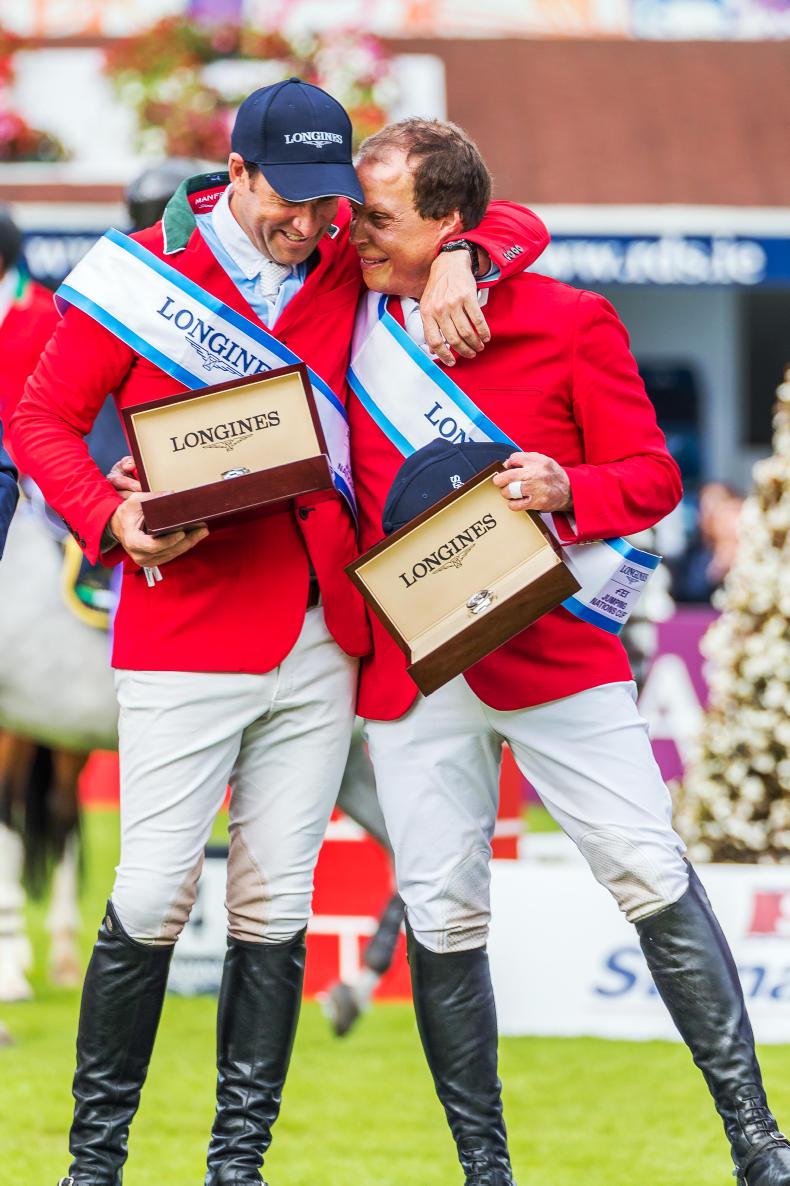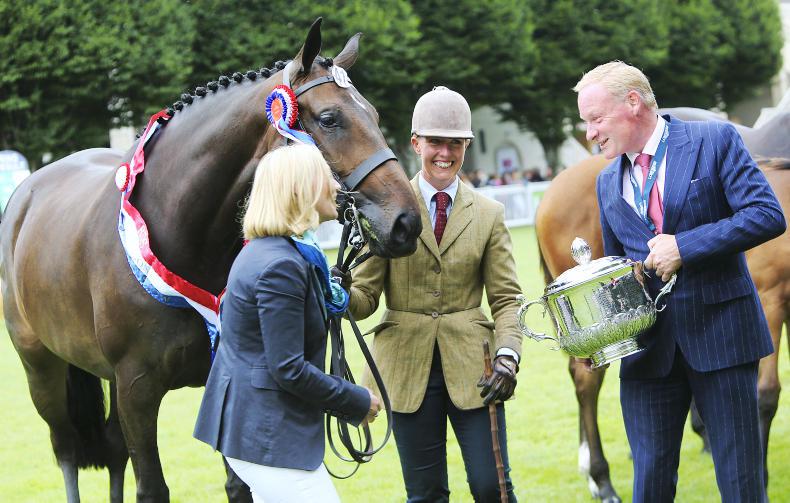WITH Britain as the largest export market for the Irish sport horse industry, the potential consequences for the Irish sport horse industry arising from Brexit are serious for those involved with show jumping and other sport horses.
On the eve of the largest annual gathering of the sector at the 2018 Longines FEI Nations CupTM of Ireland at the Stena Line Dublin Horse Show, a forum was held to examine the potential consequences of Brexit and discuss the preparations that should be considered. A report last year showed that the economic contribution of the Irish sport horse sector was €816 million and that approximately 14,000 jobs were supported by it.
Introducing the forum, Michael Duffy, CEO of the RDS, said: “Last year we first broached this topic in the hope that 12 months on that we would have clear parameters for all industries to work within. Unfortunately, we don’t have this, which is especially concerning to many export-led businesses that are reliant on sales in Britain for their livelihood. Many in the Irish Sport Horse industry are in this particular scenario. The final outcome of Brexit remains very uncertain, but what is certain is change, and we hope that today’s conversation kick-starts the Irish sport horse industry preparations for this inevitability.”
On today's (Tuesday) panel was consultant and former Minister for State, Lucinda Creighton: “Brexit poses a very real threat to Irish industries, particularly those dependent upon the British market. From working over in Brussels and speaking to people there, the prevailing feeling is one of pessimism, there is little to be positive about in the negotiations and unfortunately a number of items of concern. Polarised attitudes and disruptive actions in London mean a ‘No Deal’ scenario is becoming more likely, which will have potentially disastrous effects on Ireland’s agricultural community, including the horse sport industry. All Irish industries need to speak to their counterparts in Britain and work with them as best possible to reduce the chances of this taking place.”
RURAL IRELAND
Economist Jim Power, who recently authored a report on the economic potential of the sport horse industry said: “There is undoubted potential for further growth within this industry, which would help benefit and sustain rural Ireland. With the right supports, there is an estimated 7,000 additional jobs and a further €400 million contribution to the Irish economy from this sector. However, Brexit poses a real threat to all export-led agri-businesses and this industry is no exception. It is hard to see any positive outcomes for this industry from Brexit and a ‘No Deal’ Brexit has the potential to wipe out a lot of breeders and producers who wouldn’t have the resources to withstand such a scenario.”
Ronan Murphy, CEO of Horse Sport Ireland, spoke at the event, saying: “The UK is one of our most important trading partners for the sport horse industry and it cannot easily be replaced. Many horse sport breeders and producers are small operators with on average only two-three broodmares in most yards. The industry reaches many rural parishes right across the island of Ireland and are very exposed to what might happen from March 2019 onwards. Ireland has a worldwide reputation for horsemanship and our horses, and everyone involved directly or indirectly in the equine world will be affected by border delays and increased tariffs, should they come into effect.”
(See this Saturday's Irish Field for more reporting on the RDS Brexit Forum).


 This is a subscriber-only article
This is a subscriber-only article
 It looks like you're browsing in private mode
It looks like you're browsing in private mode










SHARING OPTIONS: